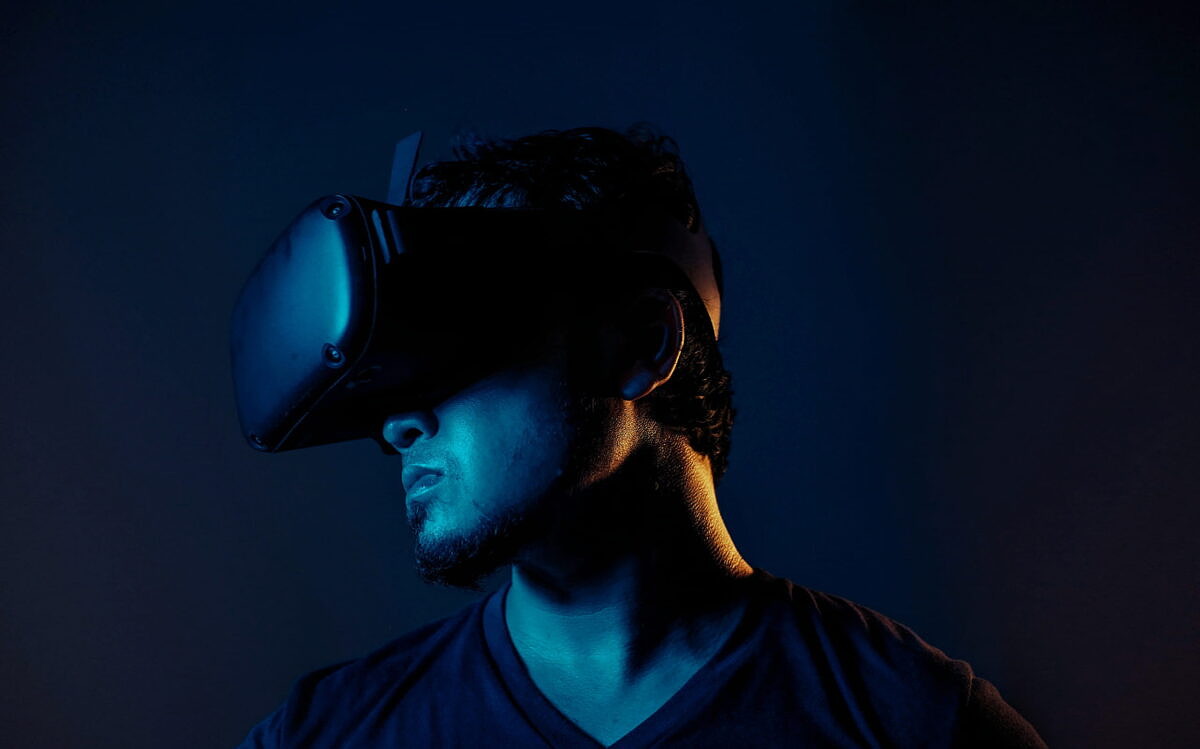VR treatments for mental health? The possibilities are already huge
Given that mental disorders are on the rise globally, improving access to treatment is essential. Our article explains the potential of VR when it comes to mental health.

Mental health: If you need help, you face a long wait
Mental disorders in our society are at unprecedented levels. In Europe alone, 25% of the population suffer from depression or anxiety each year, and up to 50% of long sick leaves are due these disorders.1
If that’s not shocking enough, about 50% of cases of major depression are left untreated.
Figures in the U.S. are at similar high levels: according to a survey conducted by the American-based Kaiser Family Foundation (KFF), around 22% of adults in the U.S. reported symptoms of a depressive disorder in the period from 2020 to 2022. Numerous other studies indicate that in the majority of suicides – both in the U.S. and elsewhere in the world – those affected suffered from severe depression.
But although the number of people affected is high, help often comes (too) late or not at all. One significant reason for this is that access to treatment is restricted, and the rapidly increasing numbers of people seeking help mean that the situation is only going to get worse. Digital solutions are becoming increasingly relevant when it comes to countering this trend and being able to help more people with mental issues in the future. Virtual reality (VR) treatments and the power of visualization offer huge potential. Here are three examples of how VR might transform the treatment of mental disorders.
#1 Overcoming anxiety at your own pace
Using VR in mental health is especially practical because virtual treatments offer flexibility. For example, many people find it easier to start dealing with anxiety online than to confront it in the real world. Moreover, the advantage of virtual scenarios is that they can be tailored to the individual, and the level of difficulty can be adjusted. That allows patients to progress at their own pace when they are learning how to deal with anxiety and tackle challenges. Another advantage is that the option to personalize VR means that it can be used for a range of illnesses and symptoms, from depression and anxiety disorders to phobias and PTSD.
#2 Improving access through automation
VR scenarios are computer-generated, fully interactive environments where patients can move around, complete tasks, and overcome challenges. Although a second person with a laptop can be present and intervene in a scenario if needed, that person does not necessarily have to be a fully trained therapist. The company gameChange, for example, has developed a fully automated application especially for this purpose. As patients work through the scenarios, they are accompanied by a virtual coach who provides them with therapeutic advice and helpful information. Therapists who are still in training can also be involved to further support treatment and intervene in scenarios, if necessary. This, in turn, increases the number of people seeking help who can be treated.
#3 Learning to deal with stressful situations in a safe environment
Using VR for mental health gives people a virtual space to start working on triggers and challenges that make everyday life difficult for them. This has a major benefit, since we often find it easier to remember specific information if we are in a similar state to when we first received that information. Simulating everyday situations that patients perceive as stressful teaches them coping techniques to manage their anxieties in an actual example of a stressful situation – such as boarding a crowded bus or simply going outside their home. When patients subsequently encounter a similar circumstance in real life, they can apply the techniques they learned in the virtual situation, making it easier for them to deal with the real one.
VR for mental health – the next big thing?
Therapists can use VR to create a safe, controlled space in an immersive environment, where patients can move around and learn to handle existing anxieties. This has huge potential, particularly in the context of confrontation therapies. It remains to be seen whether and to what extent VR will be a game changer for mental health, and whether VR treatments will offer a complete alternative to traditional therapies for some patients. One thing’s for sure: it’s going to be exciting.
1 Quelle: www.euro.who.int





